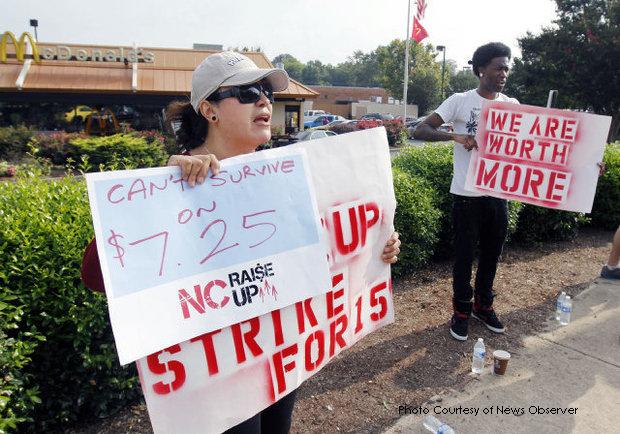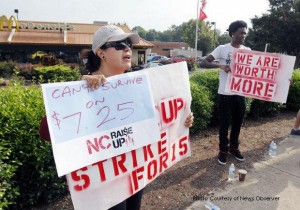

Fast food employees across the nation have organized protests against their current wages. What was once a small protest in New York has now spread to 50 other cities, including the Triangle.
Workers argue that $7.25 an hour is not sufficient enough to live off of and that it should be raised to $15 an hour.
But how will this affect your job?
According to New York Times research conducted by Casey B. Mulligan, an economics professor, increasing the minimum wage could be a factor in decreasing teenage employment. Employer costs would increase and the opportunity for employment would decrease, directly affecting those who are likely to work minimum wage jobs.
Another study done by the Wall Street Journal also makes the connection, stating that, due to the minimum wage increase to $7.25 in 2009, some 300,000 jobs were lost in that year alone. The teenage unemployment rate reached its highest since World War II. Black male teens took the hardest hit of all, with their particular unemployment shooting up to 50.4%.
Since the unemployment increase in 2009, Congress has spent over $6 billion on youth employment training programs. However, the minimum wage increase proves to be destroying more teenage jobs than the government can create.
“If [the minimum wage] was raised to something in between [$7.25 and $15], it wouldn’t be as big of a difference,” says Rachel Essary, junior, “but it would still be harder to get a job because they would have to pay each person more.”
Another question that arises is whether or not it would be fair to people with jobs that actually require college degrees. “I believe you get paid for your skills and talents,” says Ms. Luca, CTE teacher. “They do not have the skills for $15 an hour.”
Walkouts and protests are still being scheduled – including some of the biggest ones to date. Despite the protesters’ best efforts, almost no progress has been made in their fight for $15.